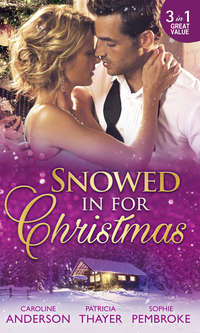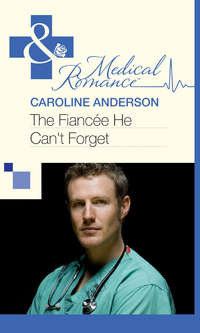
Полная версия
The Pregnant Tycoon
His eyes were full of remorse, and she shook her head and reached out, laying a gentle hand on his arm. ‘Of course it didn’t. I just feel different, and I suppose I thought it might be reflected in my face, but a sensible woman would be flattered. Anyway, I wouldn’t want my money to have changed me, and I certainly don’t want to look like Godzilla, so perhaps I should just be grateful!’
His mouth lifted in a wry smile, and his eyes swept her face, their expression tender. ‘I suppose you have changed, a little, but you’re still you, every bit as beautiful as you ever were, and it’s really good to see you again. That’s what I was trying to say in my clumsy, inept way.’
She laughed, her turn now to be embarrassed, and shook her head. ‘I’m not beautiful—’
‘I’m not going to argue with you,’ he said, but his thumb came up and brushed away the last remnant of her tears, and the tender gesture nearly brought her to her knees. Then he dropped his hand and stepped away, ramming it into his pocket, turning away.
When he spoke, his voice was gruff. ‘It’s a bit of a shock, really, seeing you again—takes me back all those years. But that’s never a good idea, and you can’t really go back, can you? Too much water under too many bridges.’
And just then some of that water came pouring into the kitchen in the form of a tidal wave of giggling and chasing and high-pitched shrieks that skidded to a halt the moment they saw her.
The little girl she was ready for—dark-haired, blue-eyed, the image of her father. The boy, though—he stopped her in her tracks. His colouring was almost the same, but it was the shape of his face, the expression, the vulnerable tilt to his mouth.
Julia.
Will straightened up, looking down at them with pride in his eyes.
‘Izzy, meet my children—Michael and Rebecca. Kids, this is Isabel. She was at school with me and your mother. Say hi.’
‘Hi,’ they chorused, and then their four eyes swivelled back to him and mischief sparkled in them again. ‘Grannie says can we ask you for some more eggs, because everybody wants egg sandwiches today and she’s run out,’ Rebecca said in a rush.
‘And Grandad’s sold a climbing frame and a tree house this morning, and you know old Mrs Jenks?’ Michael said, his eyes alight. ‘She’s having a willow coffin. She’s going to have a woodland burial, and her son’s up in arms. I heard Grannie telling Grandad. They were arguing about it in the café, and she said it was her body, she could do what she wanted with it. And Grannie said to tell you there’s roast pepper flan today,’ Michael added inconsequentially, and Izzy felt her lips twitch.
Will was smiling at them, ruffling Michael’s hair and slinging a casual, affectionate arm around his daughter’s shoulders, and Izzy felt suddenly empty.
I’ve got nothing. Thirty years, and I’ve got nothing. Nothing to hand on except money, and no one even to give that to. No wonder I haven’t changed.
The kettle boiled, its shrill whistle fracturing the moment and freeing her.
‘I’ll make the tea—you get the eggs,’ she said, and opened the cupboard the mugs had always lived in.
‘Try the dishwasher,’ he said over his shoulder as they went out, and she pulled down its door and found mugs—lots of mugs, unwashed, even though the machine was full. She put powder in the dispenser, shut the door and set it going, then washed the two mugs she’d rescued and made the tea, lifting out the teabags just as he came back in.
‘Find everything?’
‘Just about. I put the dishwasher on.’
‘Oh, damn,’ he said. ‘I meant to do that.’ His grin was wry. ‘I meant to do all sorts of things, but you were early and the ewe was late, and—’ He broke off, the grin widening as he shrugged, and then he sighed and wrapped his arms around her again, and hugged her briefly against that wonderfully solid chest that she had no rights to.
‘It really is good to see you again,’ he murmured, releasing her to look down searchingly into her eyes. ‘Are you OK? Really OK?’
She found that smile somehow, and the lie to go with it. ‘I’m fine. How about you? You’ve had so much more to contend with.’
His eyes tracked away, then back, and his smile was fleeting. ‘Yes. I’m OK now. It’s been a rough few years.’
‘Tell me,’ she said softly, and he picked up his mug and pulled out a chair for her, then sat in the carver at the head of the table, his father’s chair if she remembered right, and stared down into his tea.
‘It was nearly three years ago. She’d been having difficulty swallowing, and she felt as if there was something stuck in her throat, so she went to the doctor. He referred her to the hospital, and they diagnosed cancer of the oesophagus. She had treatment, but it was only to make it less uncomfortable for her. We knew that right from the beginning. She reckoned it was because of the chemicals in our food, and she’d had concerns about that for some time, so by then we were already eating only organic stuff and the farm was in the process of going organic.’
‘And there was nothing they could do for her?’
He shook his head. ‘Only short-term and then it was all down to the Macmillan nurses and ultimately the hospice. It was agony to watch.’
Izzy could hardly imagine it. ‘Did the children know?’ she asked, thinking of the bright, bubbly young things who’d burst in on them just a few minutes earlier and chattered about coffins, of all things, and he nodded.
‘Yes. Eventually. We told them she was sick, and then when it was inevitable and the end wasn’t far away, we told them she was dying. She made them scrapbooks—snippets of herself for them to keep, memories they’d shared, things they’d want to know about themselves that only she could tell them. Some of it will only make sense to them when they’re older, of course—things about their births, philosophical stuff about being a mother and what it meant to her—but lots of it was very ordinary and just things she’d treasured about them.’
Something splashed on Izzy’s hand, and she blinked and swallowed. Tears. Tears for Julia, who’d always wanted to save the world, and for the children—and for Will, his voice quiet and thoughtful, telling her about Julia’s last days. He had loved her, she realised with shock. Really, genuinely loved her. She hadn’t wanted to believe it, but now she did.
She blinked again, squeezing the tears from her eyes and letting them fall, and then he made a soft, clucking noise with his tongue and handed her another fistful of kitchen roll.
She sniffed, scrubbing her nose with the tissue. ‘I’m sorry. It’s just all so sudden. I mean—I didn’t even know until last night, and now, talking to you like this—it’s all so real.’
‘It seems light years ago,’ he said gruffly. ‘We move on. Time heals, Izzy. The kids don’t stop growing just because their mother’s died, and they’ve dragged me with them. I’ve had to cope because of them, and we’ve got through it together. It’s been very positive in a lot of ways.’
‘And all I’ve done is make rich people even richer and rescue reputations that probably didn’t deserve rescuing, and acquire some of their wealth along the way. My God.’
Her voice sounded hollow, and it seemed appropriate. That was how she felt inside—hollow and empty and worthless.
‘I shouldn’t be here,’ she said, the tears welling again, and then his arms were round her again—again!—and he was cradling her against his body, standing in front of her so her cheek was pressed against his board-flat abdomen, just above his belt, the buckle cold against her chin.
‘Don’t be silly,’ he murmured gruffly. ‘Of course you should be here. It’s lovely to see you, Izzy. It’s been too long.’
It had, she thought sadly. Much too long. So much too long that it was years too late.
Too late for what?
She didn’t want to think about it—not with his belt buckle pressing into her chin and his arms around her and the solid beat of his heart sounding through that wall of muscle. And then his stomach rumbled, deafening her, and she laughed a little unevenly and eased away.
‘You sound hungry.’
He laughed with her, propping himself on the edge of the table just in front of her and staring down into her eyes. ‘I am. I missed breakfast—and, come to think of it, I don’t know if I ate last night. I missed the food at the party. Come on, we’ll go over to the café. Mum’ll feed us.’
‘In the café?’
‘Mmm—the Old Crock. That’s what she calls herself, and it seemed like a bit of fun to call the café the same thing. She runs it—and the farm shop. Dad’s in charge of Valley Timber and the willow business.’
‘The climbing frame and the tree house and the coffin,’ she said, remembering Michael’s words, and she wondered uneasily where Julia was buried. The churchyard, probably, since her father had been the vicar. She’d have to ask him some time—but not now. Now she’d heard and seen enough, and she needed time out to absorb it all and put it into place in her head. And her heart.
‘He makes more than coffins. He broke his leg and was in hospital, and he did basket weaving for occupational therapy. He loved it, but it was a bit time-consuming and not really cost-effective, and then he discovered willow hurdles. It’s all come from there, really. But it’s not just him; there are lots of people working for him, many of them disabled. It’s a thriving business and it puts something back into the community, and we’re all really proud of it. Come on. I’ll show you round after we’ve eaten.’
He held out a hand, large and strong and callused, so different from the soft city hands she was used to, and pulled her to her feet.
‘It’s changed so much,’ she said as they went out into the yard and she looked again at all the new enterprises.
‘Not really. Not in the ways that matter. It’s still home.’
Home. Could he have found a word more calculated to tear a hole in her heart? She thought of her apartment, high up in the polluted air above London’s Docklands, with the deli and coffee shop and restaurant just inside the entrance, the health complex in the basement, the home shopping service, the weekly delivery of organic vegetables in a box to her kitchen, the concierge to run errands and fix stuff that went wrong—was that home?
A cow mooed, and under the bushes just in front of them chickens were scratching in the leaves.
No, she thought. Not home. This is home.
But not yours. Never yours.
‘You’re lucky,’ she said to him, suddenly choked again. ‘To live here, surrounded by all this.’
‘I know,’ he said softly, and she could see the pride and the affection in his face. Then he turned to her and grinned. ‘Come on, come and see Mum. She’ll be delighted to see you again. She loved you.’
You loved me. Or I thought you loved me. I loved you—
‘I’ll be delighted to see her again, as well. She’s a darling,’ Izzy said firmly, and, straightening up, she threw back her shoulders and headed across the yard beside Will.
CHAPTER THREE
AS THEY crossed the farmyard, Izzy was struck by the hail of friendly greetings from everyone they passed. It was obvious that Will was well liked and respected by the community—and equally obvious that word of her presence here had spread like wildfire.
For the most part their friendly curiosity was harmless, and some of them remembered her family from all those years ago. They were kind and welcoming, if a little wary, which she could understand.
That dratted reputation again, she thought philosophically, and smiled back until her face felt like cracking.
Others, though, were not quite so tactful or kind—like the two old crones who stopped them just a few feet from the café entrance.
‘What a lovely day, Will.’
‘Isn’t it?’ he said, and made to walk on, but one of them stopped him with a hand on his arm.
‘Aren’t you going to introduce us to your friend?’
He sighed and gave a rather polite smile that made Izzy want to laugh.
‘Sorry, ladies. Mrs Jones, Mrs Willis, this is Isabel Brooke.’
Mrs Willis nodded sagely, smiling at Izzy in a way that made her instincts prickle. ‘Of course. You’ve been busy since you left here—the papers don’t think much of you, do they, dear?’
Izzy smiled sweetly in reply. ‘Don’t they? I wouldn’t know—I have better things to do than read the gutter press.’
The woman sucked in her breath, but any reply she might have made was drowned out by Will, coughing suddenly and turning away, and Izzy had to fight the urge to laugh.
‘Sorry—choked—need a drink,’ he gasped, and, grabbing her elbow, he steered her towards the café.
As they made their escape, Mrs Willis got her breath back. ‘Well, really!’ she muttered.
‘Of course, they used to run around together—if you ask me, he had a narrow escape,’ Mrs Jones chipped in. ‘Julia was a lovely girl.’
Here we go, she thought. They’re going to start on my mythical conquests in a minute.
A minute? They didn’t wait that long.
‘That one’s a nasty piece of work,’ Mrs Willis went on. ‘Supposed to have a revolving door on her bedroom.’
‘Oh, I believe it, and it isn’t hard to work out what she’s after now,’ Mrs Jones said spitefully, her voice carrying clearly across the farmyard, and Will gave an exasperated sigh and shot Izzy an apologetic look.
‘Hell, Izzy, I’m sorry,’ he muttered. ‘I didn’t imagine even those two would be quite so harsh.’
She shrugged. ‘Don’t worry. I’m used to it. I’ve heard the revolving door joke so many times I’m immune,’ she lied. And yet, even though she heard it every day, even though she was constantly sniped at by thwarted business rivals and the press took endless potshots at her reputation, still, to hear it up here in what had always seemed like the ultimate sanctuary—that hurt.
It wouldn’t be so bad, she thought, if there was any truth in it. If she had even one per cent of the fun she was supposed to have, she wouldn’t feel so hard done by—and maybe that was the trouble.
‘Come on, we’ll get you a nice cup of coffee and a menu to look at, and you can say hello to Mum. She’ll be pleased to see you.’
‘Is she expecting me?’
‘I told her I was bringing a friend in. I didn’t tell her who, but the rest of them seem to have found out.’
‘Won’t the children have said something anyway?’
Конец ознакомительного фрагмента.
Текст предоставлен ООО «ЛитРес».
Прочитайте эту книгу целиком, купив полную легальную версию на ЛитРес.
Безопасно оплатить книгу можно банковской картой Visa, MasterCard, Maestro, со счета мобильного телефона, с платежного терминала, в салоне МТС или Связной, через PayPal, WebMoney, Яндекс.Деньги, QIWI Кошелек, бонусными картами или другим удобным Вам способом.









